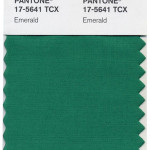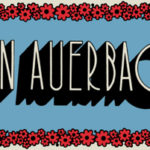Writers on writing: It’s a sub-genre all to itself, and a fun one too, at least for this guy. Grammar books, memoirs on the craft, debates over needlessly nestling unnecessary commas ‘tween thoughts best left behind: This is the sort of shameless geekery I’ll readily admit to.

Cormac McCarthy dished out some good advice on writing, of all things, scientific papers for rigorous academic-type journals. Strangely, he has a sideline providing editing services to “numerous faculty members and postdocs at the Santa Fe Institute in New Mexico” and a few theoretical physicists at Harvard too. While word-trimming advice for the scientific community sounds like something you could skip, it turns out that good writing is good writing, regardless of the destination.
Take a minute and read his list here: Novelist Cormac McCarthy’s tips on how to write a great science paper.
I’m happy to jump on most all of it — the echoes of Strunk & White that you’d expect from the laconic McCarthy — and his willingness to bend stiff strictures for punch and power.
Hewing to pedagogical convention, he starts with stark commands:
Use minimalism to achieve clarity.
And then slips in exceptions:
You can’t please an anonymous reader, but you should be able to please yourself.
Also this:
And don’t worry too much about readers who want to find a way to argue about every tangential point and list all possible qualifications for every statement. Just enjoy writing.
This is one that I need to hang on to. When I write, heck, when I breathe, I’ve got a lot of voices in my head. All-comers they are, passionate with conviction, fighting for veneration. And they insist, demand that I take a knee, tip a hat, genuflect to their point of view. A thousand egoic death-cuts later my prose is prone, limp, bled-out, and worse: boring.
And why boring?
Because Truth is the spice of the lettered life. Not the google-able type of truth, but capital “T” truth. Gut-truth, heart-truth. Unassailable towering bedrock truth. Truth with earth-core roots and sky-scraping aspirations.
Even works of pure sci-fi imagination spark their joy, find their power, in tapping this essential stuff: the feelings, frustrations, dreams of the reader. Such are the realest of all things, truer than dates and facts and figures. This is understood. But I digress…
Here’s one final point, and my favorite of Cormac’s directives:
Dashes should emphasize the clauses you consider most important — without using bold or italics — and not only for defining terms.
I’m a fan of the dash. Yes, I’m referring to the em dash — the greatest of all dashes — that bold typographical stroke that leaves all manner of commas, semi-colons, parentheses, and other weaker connective kludges quivering in the dust. And did you notice the beautiful, generous, uplifting spaces on each side of those dashes? Did that seem ok to you? It did for me. Alas, most style manuals will insist that the spaces be snipped—the words sadly fighting for territory—and I find myself caving to convention more and more.
But for today — for today alone — I will let my words live, breathe, and wander, each phrase a hero, unbound, free to seek the cocked ear of justice and fortune, to embark on a noble journey, the sort of thing you might read about in Cormac McCarthy.
— Grant Wentzel – At your service!


